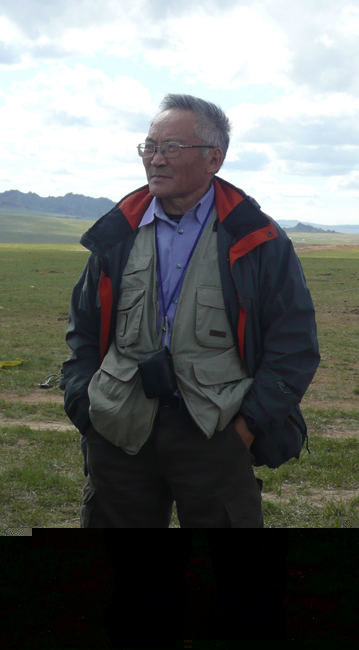 |
|
Bair Namsaraev (1943-2015)
The organization of the 13th International Conference on Salt Lake Research in Ulan-Ude, Republic of Buryatia, Russia, was initiated by the outstanding microbiologist, PhD, Prof. B.B. Namsaraev, the Honoured worker of science of Russian Federation, who deceased on September 5, 2015, at the age of 72.
Bair was born in 1943 in the small village in Southern Siberia in the family of a school teacher. He had 6 brothers and sisters. After school he worked on the collective farm and served in the Soviet Army. In 1965 he entered Moscow State University. After graduating in 1970 Bair started his PhD work on the hydrogen oxidizing bacteria at the Institute of Microbiology in Moscow. Since 1973 he worked at the Institute of Physiology and Biochemistry of Microorganisms in Pushchino. Bair travelled all the oceans studying sulfate reducing bacteria and methanogens in the bottom sediments. He continued his research after return to the Institute of Microbiology in 1985, collaborating with the Center for Great Lakes Studies (Milwaukee, Wisconsin) and the Institute of Oceanology (Havana, Cuba). Prof. B.B. Namsaraev contributed greatly to the studies of microbial processes in marine and freshwater ecosystems (the hydrotherms of the Pacific Ocean and Kuril Islands, the salt marshes of Cuba, sediments of the Black, Baltic, Japan, Carribean and Kara Seas, the Indian Ocean, lakes Michigan and Baikal).
After the work in the leading western institutes he returned to his native South Siberian steppes to study salt and soda lakes. Being a well-known scientist, in 1993 he left Moscow for Ulan-Ude which is situated 5 000 km far to the East, next to the Russian-Mongolian and Russian-Chinese border. This region has merely been studied by microbiologists before in spite of the fact that there are plenty of interesting objects (Lake Baikal, hot springs and hundreds of salt and soda lakes). Prof. Namsaraev knew the region very well. One of the lakes that he studied deeply, Lake Khilganta, is situated only 50 km far from his native village Suduntuy. In Ulan-Ude he created the Laboratory of Microbiology which has soon become one of the leading institutes in Russia studying extreme environments. The studies of Prof. Namsaraev have also been focused on the influence of microorganisms on the condition of Lake Baikal ecosystem, the estimation of biotechnological potential of microorganisms of the extreme environments and the research of the medicinal properties of mineral waters and slit of the hydrotherms and lakes.
Prof. Namsaraev was an outstanding scientist who published more than 300 scientific articles and was the supervisor of 38 PhD students who worked in all parts of Russia, from Moscow to Yakutsk and Ulan-Ude. He supported the interaction and collaboration between many scientific groups in Russia and worldwide. Prof. Namsaraev was awarded with the medal of Agvan Dorzhiev, one of the highest awards of Republic of Buryatia, and also with the ranks of the Honoured worker of science of the Russian Federation and Honoured worker of higher education of the Russian Federation according to his merits. His colleagues have isolated and described the new species of bacteria named after him: Alkaliphilus namsaraevii sp. nov. One of the scientific sections of the conference will be dedicated to the memory of Prof. Namsaraev.
|

